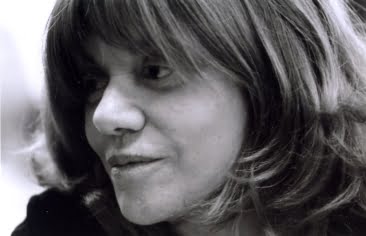
Elsa Osorio
Elsa Osorio was born in the Argentine capital of Buenos Aires in 1952. She studied literature at the university there in order to become a teacher, and has since worked as a writer, journalist, scriptwriter and assistant professor. In 1994 she left Argentina, not least because she disapproved of President Carlos Menem’s slack attitude in dealing with the crimes committed by the military dictatorship. She resettled in Madrid.
At the centre of her literary work lies an examination of contemporary Argentine history. In the process, she turns her attention in particular to the ramifications of politics for the individual, which she illustrates using striking biographies. The »Frankfurter Allgemeine Zeitung« wrote that the author succeeds in »convincing readers that the instruments of the art of story-telling are shown to be most effective at that point at which they lead us back to reality, where our perspective and our interests, whetted by the imagination, are recalled to reality.«
In 1982 she debuted with the volume of short stories »Ritos privados« (t: Private rites), for which she was awarded the most prestigious literature prize of her country, the Premio Nacional de Literatura Argentina, in the following year. She later published »Beatriz Guido« (1991), a novel of this Argentine writer’s life, and a collection of political and linguistic essays »Las malas lenguas« (1994; t: The wicked tongues).
Her sixth novel, »A veinte anos, Luz« (1998; Eng. »My name is Light«, 2003), was greeted with acclaim on the international scene. It won her Amnesty International’s literary prize, was translated into more than fifteen languages, and published in twenty-three countries – only in Argentina was she unable to find a publisher at first. The novel deals with a dark chapter of the Argentine military dictatorship. It tells the story of the fate and search for identity of a young woman, born in captivity to opponents of the Junta, who is taken away by the family of an officer who is loyal to the regime.
Another prevailing theme in Osorio’s work is tango, which she focused on in her screenplay, »La Lección de tango« (1997; t: The tango lesson). Her most recent novel, »Cielo de tango« (2006; t: Tango Sky), also deals with the Argentine dance and merges history and imagination. Like the former work, it unfolds over various temporal planes and tells of two families of differing social backgrounds whose lives are intertwined through tango, beginning with the rise of Argentina in the late eighteenth century and leading up to the present day. The narrative technique of this recent work, which also describes the history of tango, is adopted from the movements of the dance itself: it moves forwards, backwards and sideways, and then changes direction.
Among Osorio’s further distinctions are an award for best comedy as well as a prize for journalistic satire. She has been living since 2006 once again mostly in Buenos Aires, where she has recently started running creative writing workshops. She is currently working on a collection of short stories.
© international literature festival berlin
Ritos pr ivados
Losada
Buenos Aires, 1982
Reina mugre
Puntosur
Buenos Aires, 1990
Beatriz Guido: Mentir la verdad
Planeta
Buenos Aires, 1991
Cómo tenerlo todo
Planeta
Buenos Aires, 1993
Las malas lenguas
Grupo Editor Latinoamerica no
Buenos Aires, 1994
Mein Name ist Luz
Insel
Frankfurt/Main, 2000
[Ü: Christiane Barckhausen-Canale]
Im Himmel Tango
Insel
Frankfurt/Main, 2007
[Ü: Stefanie Gerhold]
Übersetzer: Christiane Barckhausen-Canale, Stefanie Gerhold,
